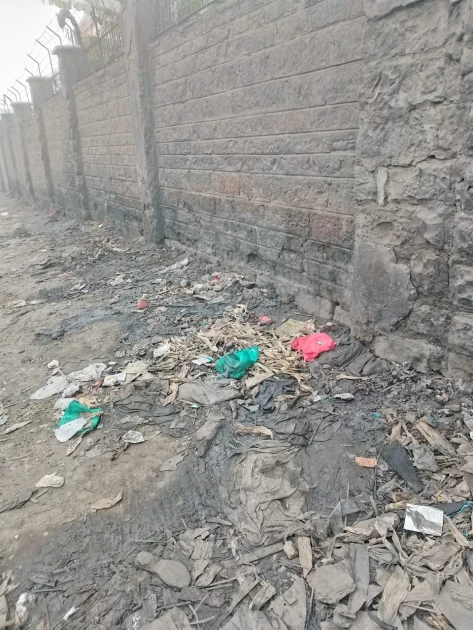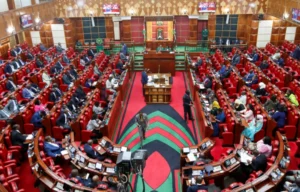Public Defiance Fuels Nairobi’s Hygiene Woes
Reuben Mwangi, shares the same concern. He points out that the issue is made worse by the fact that the abused areas are close to food stalls.

Traders are among the hardest hit in Kariokor. They say the foul smell from the alleys near them has driven customers away from their establishments. Photo/ Citizen Digital
By Juliet Jerotich
Nairobi continues to battle a sanitation issue with some of its citizens ignoring hygiene regulations. Despite clear signs prohibiting urinating and littering in public, many people continue to go contrary to the rules. The result is rising health risks and loss of businesses in several areas.
Traders are among the hardest hit in Kariokor. They say the foul smell from the alleys near them has driven customers away from their establishments. Nelson Musili, an owner of a small business, says his sales have dropped by a large margin.
“Business is decreasing every day because of the smell. Customers do not want to come close,” he says.
Musili states that the government should build additional public toilets. He suggests free toilets for street families and those who are not able to afford pay-to-use toilets.
Another trader, Reuben Mwangi, shares the same concern. He points out that the issue is made worse by the fact that the abused areas are close to food stalls.
“It’s a health hazard. People dump waste or urinate where foodstuffs are being sold. This is not safe and dangerous to everyone,” he explains.
City officials admit the problem has been difficult to contain. Geoffrey Mosiria is Nairobi City County’s Chief Officer of Environment. He says the government has tried many things. These include public sensitization and strict enforcement of sanitation regulations.
“We have put up signs and sensitized people. Cases of public urination have gone down by 90 percent,” Mosiria says.
He outlines how the offenders are arrested and taken to court. Judges impose fines of Ksh. 10,000 and more. In other cases, they are forced to engage in community services, such as sweeping the streets or cutting grass.
However, the problem of accessibility remains. There are toilets in Nairobi that are pay-to-use, but they are not accessible to everyone. The rates are too high for the majority of low-income earners and street families. This forces them to use unsafe places.
Traders now want urgent action to save their businesses and protect public health. They say better facilities and fair access are the only way to stop the growing crisis.
The sanitation issue continues to expose gaps in the city’s infrastructure. Unless addressed quickly, it risks undermining Nairobi’s image as a clean and modern capital.





